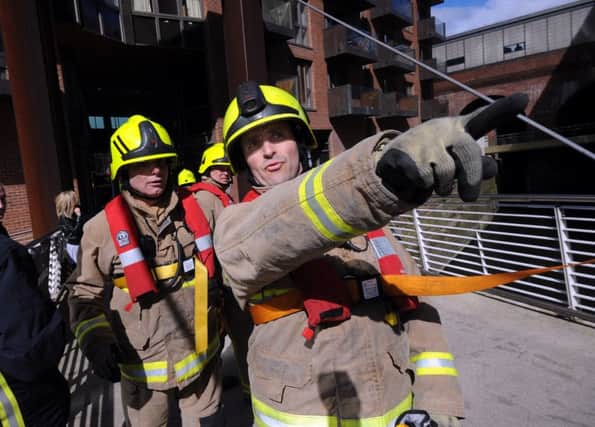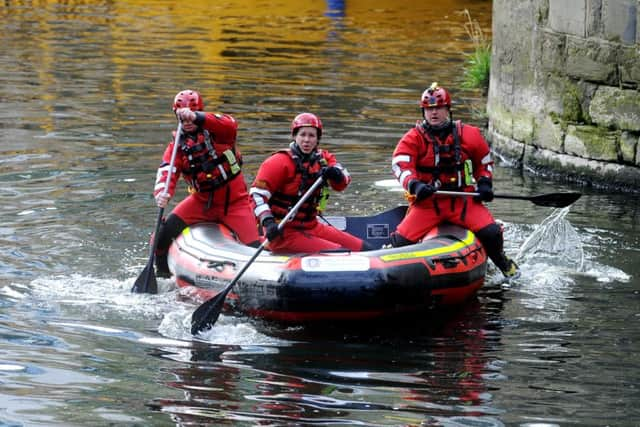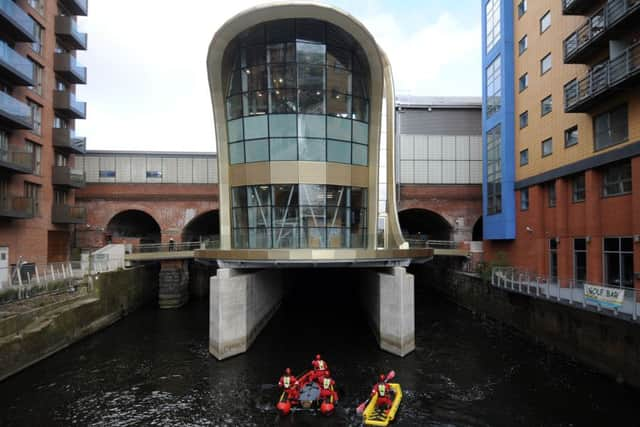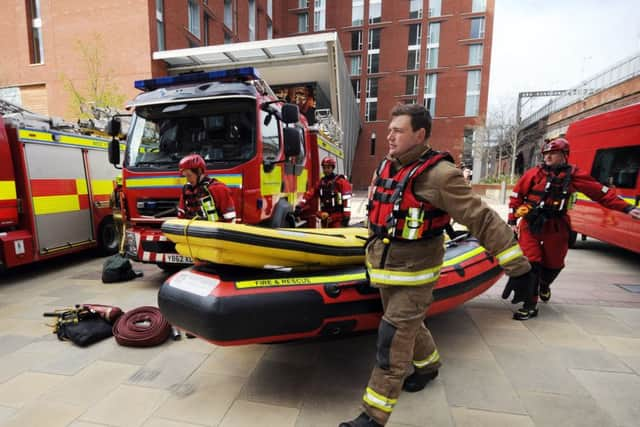Emergency services tackle river rescue operation in Leeds city centre


Fire crews descended on the River Aire in Leeds city centre for the training exercise after figures showed there have been 33 water-related fatalities in the county in three years – with four in Leeds since 2013.
The startling statistic puts West Yorkshire in the top 10 regions in England for drowning incidents – despite it being one of only two land-locked counties on the list.
Advertisement
Hide AdAdvertisement
Hide AdIan Bitcon, area manager for fire safety at West Yorkshire Fire and Rescue Service (WYFRS), said: “We are concerned by the statistics as there have been a number of fatalities in waterways across West Yorkshire in recent weeks.


“We want the public to be conscious of the risks, especially as the better weather begins.
“Quite often people who die in water-related incidents had no intention of entering the water. This could be dog walkers, people fishing, joggers and people on their way home from a night out who quite simply slip and fall into the water.
“Canals in particular have high sides and once in the water it may be extremely difficult to escape.
Advertisement
Hide AdAdvertisement
Hide Ad“The water will gradually sap your strength and leave you helpless.”


WYFRS tackled the training as part of Drowning Prevention and Water Safety Week, which runs until May 1.
In the past five years, the emergency service has rescued 189 people from water.
Alastair Harvey, recreation advisor at Yorkshire Water, added: “Reservoirs may look tempting to take a swim in but they can be killers.
Advertisement
Hide AdAdvertisement
Hide Ad“As the warmer weather approaches, we urge people to [...] under no circumstances enter the water.


“Exposure to this cold water can lead to shock, hyperventilation, increased blood pressure, breathing difficulties and heart attacks.
“We want people to enjoy themselves without risking their lives by entering the water.”
If someone falls into deep water, you should:
* Call 999 and ask for the fire service and ambulance, giving your exact location.


Advertisement
Hide AdAdvertisement
Hide Ad* Try and help the person if it is safe to do so, but never enter the water yourself.
* Shout for help from anyone who might be close by.
* Shout instructions to the person in the water to help keep their focus.
* Look for lifesaving equipment such as lifebelts and flotation devices.